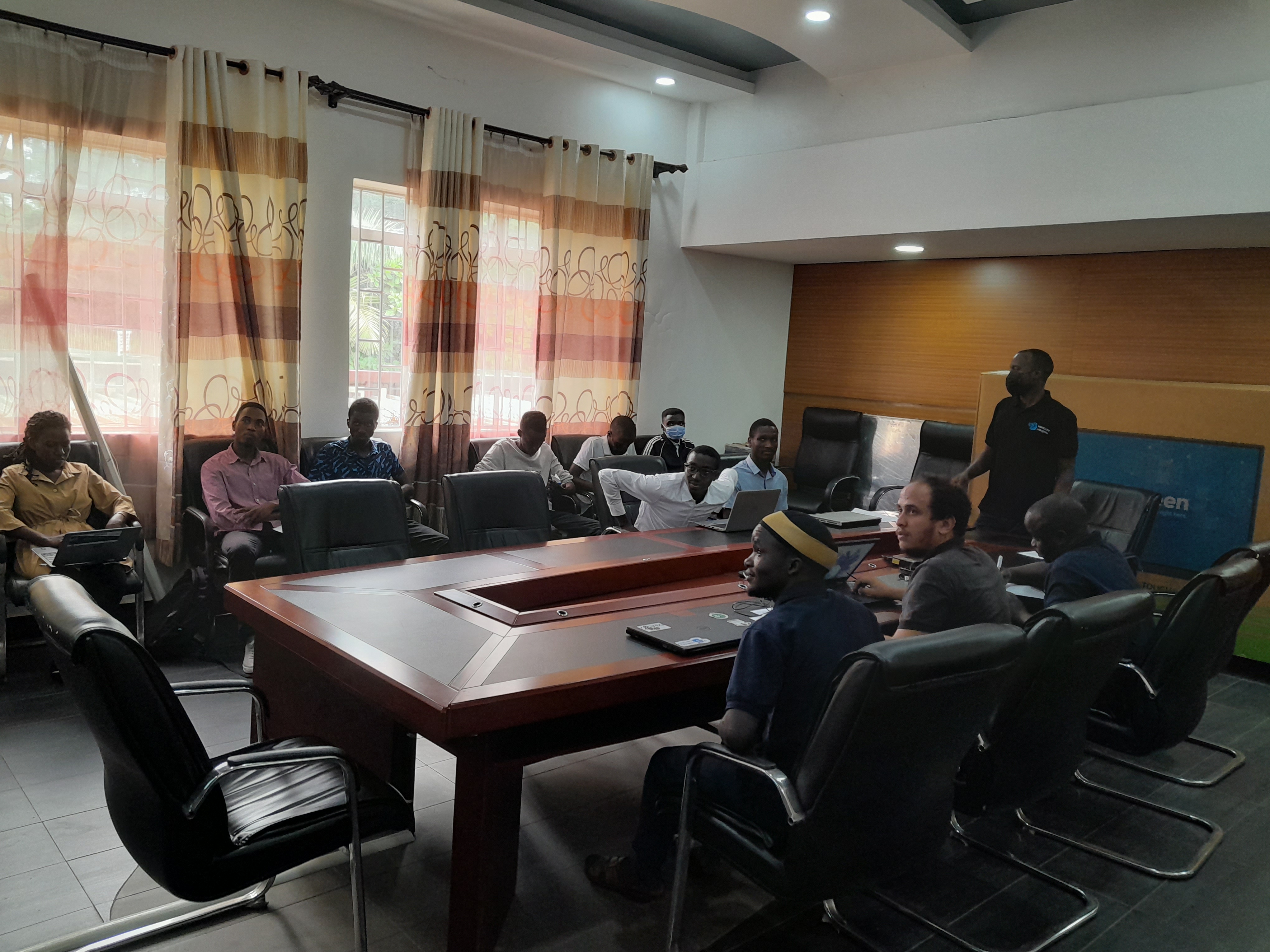We recently had the pleasure of having ELEVEN interns join our lab. Rather than stick our interns in some dark cube and ask them to photocopy documents, we had them learn ML and work on different projects. This blog will give some insight into who the interns are and the projects they worked on.
Bean Disease Classification Project
Team: Kisirinya Bonny and Opio Emmanuel
The current state of data collection and crop pest and disease diagnosis is transitioning from disease identification using visible symptoms to the use of data-driven solutions applying machine learning and computer vision techniques.
This project aims to build deep learning models to identify bean crops that have been affected by either bean rust or angular leaf spot and to deploy these models into an interface where they can be used for decision support.
Financial Inclusion Machine Learning Project.
Team: Martha Murungi and Nteza Enock Jotherm
Traditionally, access to bank accounts has been regarded as an indicator of financial inclusion. Despite the proliferation of mobile money in Africa and the growth of innovative fintech solutions, banks still play a pivotal role in facilitating access to financial services.
The objective of this project is to create a machine-learning model to predict which individuals are most likely to have or use a bank account. The models and solutions developed can provide an indication of the state of financial inclusion in Kenya, Rwanda, Tanzania and Uganda, while providing insights into some of the key factors driving individuals’ financial security.
Key Word Spotter NLP Project
Team: Steven Mpawulo and Trevor John Kasule
Radio programs are an essential tool for informing and reaching out to rural communities in Uganda. Farmers all around Uganda and Africa rely on radio programs broadcast in their native tongues to learn more about agricultural practices and to acquire critical market information.
Developing a machine learning model that can identify the agricultural term in an audio clip was the aim of this project. (which could be in English or Luganda).
In order to resolve the audio classification issue, a deep learning strategy was adopted. From the audio samples, spectrograms were extracted and then fed into convolution neural networks to achieve our aim.
Maize Disease Classification Project
Team: Akol Ivan Collins, Nakacwa Olivia and Mugizi Bruce
Recently, it is evident that the number of maize diseases and the degree of harm caused by pests has skyrocketed among maize. Pests cause severe yield reductions which is a critical problem. Therefore it is vital to promptly identify and monitor maize during the growing period.
For such a problem, the use of data-driven solutions applying machine learning algorithms and computer vision techniques has to be implemented.
This project aims to build deep learning models to identify image leaves that have been affected and also deploy them using a friendly user interface.
Swahili News Classification
Team: Yiiki Afedra Brian and Namulira Viola.
News in the local language would contribute significantly to growth in education, technology, and the economy and culture of many East African countries though presently, English is dominant in online spaces.
With the above background, a multi-class classification sequential model was developed to classify Swahili news content according to the categories of national (‘kitaifa’), international (‘kimataifa’), business (‘biashara’), sports (‘michezo’) and entertainment (‘burudani’).
The model can be used by Swahili online news platforms to automatically group news according to their respective categories and help readers find the specific news they want to read. In addition, the model will contribute to a body of work ensuring that Swahili is represented in apps and other online products in the future.
We hope that they enjoyed their time with us as much as we did and hope to work on more projects with them in future.
